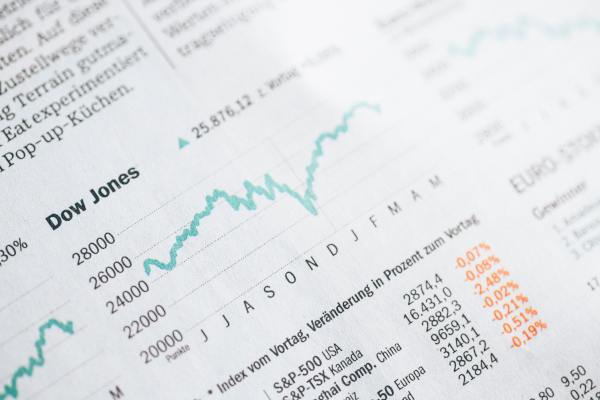Published on July 25th, 2017
This is a guest contribution by Nick from Of Dollars and Data
This week I want to discuss why dividends are important for building wealth and why focusing solely on price changes is detrimental to your investment mindset. I will tackle all of this shortly, but first let’s talk dividends.
As you likely already know, a dividend is a payout from a business to its shareholders. The size of the payout is decided by the company’s Board of Directors. This decision by the Board is incredibly important, because if a business has extra cash after paying the employees, suppliers, taxes, interest, etc., there are two options:
- Provide a payout to shareholders (i.e. through dividends, share buybacks, etc.)
- Reinvest the excess profits back into the business (i.e. expand, experiment, etc.)
That’s corporate finance in a nutshell. However, this decision is not as easy as it looks. In theory, if a business thinks it can earn a higher return with its earnings than its shareholders would earn elsewhere (assuming the same level of risk), then it should reinvest its profits. If it is confident it cannot generate those returns, then it should pay a regular dividend. This issue is not as clear cut as I make it out to be, as many companies do both or shift their stance based on a changing business environment.
However, currently there is a divide in corporate America about which of these two methods is better for shareholders. There are those like Jeff Bezos at Amazon who believe that all excess profits should be reinvested into new business ventures. There are also those many companies that pay dividends regularly (i.e. Verizon, Chevron, etc.). Now I am not here to pick a side, as I think both methods are valid for different reasons, but I doubt we would be talking about Amazon today had Bezos kept it solely as an online book store.
Corporate finance aside, dividends are important because they act as interest payments, albeit riskier interest payments, from a business. If you reinvest these interest payments, they start compounding, the process becomes fractal, and you continue building wealth. If you want to get an idea for how important this is, consider the following plot. The plot illustrates the percentage of total return that came from dividend reinvestment, as compared to real price appreciation, in the S&P 500 over each 40 year investment period from 1871–2016. As you can see, over a typical investment life (40 years), a vast majority (80%+) of all gains will come from dividends:
Even over shorter periods, such as 20 years, the S&P 500 has had a vast majority of its investment gains come from dividends. However, the dividend share of total return has declined in recent years:
Despite the recent fall in dividend share, what this says to me is that you should not focus on price changes as much as the little dividends compounding away all the while. Dividends are hard to notice in the short run, but they are impossible to ignore in the long run. As I said previously:
“One simple action done many times leads to powerful results.”
For a personal look at this, here are my dividend payouts from my retirement account by year:
- 2013: $115 (Q3 + Q4 only)
- 2014: $411
- 2015: $626
- 2016: $1,223
- 2017: $621 (Q1 + Q2 only)
I know that these amounts are nothing to write home (or on a public blog) about, but what you are seeing is the beginning of this process. Imagine the dividends 38 years from now when (if?) I retire.
Now you might be thinking that, “Oh this is just another post on the power of compounding.” Yes, but no. I am not here to tell you that compounding is extraordinary. This should be self-evident. I am here to tell you that our society is obsessed with price and price changes, and this is the wrong way to think about your investments. The price is useful because it is easy to measure and gives immediate feedback. The problem with this is that it ignores the most important factor when it comes to investing in the stock market: compounding (i.e. dividends).
By focusing on price, we are looking at the size of the fruit, but we are ignoring the most important part: the seeds. I don’t care if you can grow oranges 20% larger then mine if I can produce 50% more seeds per orange. Guess who wins in the long run?
Change Your Investor Mindset
To clarify I am not here to convince you that you should only buy stocks that pay dividends. In fact, there are quite a few companies, like Amazon, that don’t pay dividends, but have been incredibly successful due to expansion and experimentation in new business lines. The point of this post is that dividends have been far more important than price changes historically. Tweedy, Browne Company LLC released an incredible report on what active approaches have worked in investing, and one of these approaches is buying high dividend yield stocks. There is no guarantee this will hold in the future, but dividend stocks tend to outperform non-dividend paying stocks.
So change your investment mindset. Ignore the price, remember the dividends. Thank you for reading!







